#in persona christi
Text

What do we think of my collar tag? ⸸ 💕
Edit; the tag is from Restrained Grace! <3
#priest kink#hierophilia#heirophilia#blasphemy kink#father speaks#i forgor to post this earlier lmao#blasphemy#t4t nsft#puppyboy#in persona christi
21 notes
·
View notes
Text
No, in confession you aren't talking directly to Jesus, nor is He to you
A friend asked me to comment on the following sentence that she had come across:
"When the priest declares our sins are forgiven, it is Jesus speaking his words of love through the priest."
I fgured I would share my response:
"St. Thomas Aquinas is the source of the distinction that in confession and other sacraments, the words said by the priest are the priest's, but in the mass at the consecration the words of the priest are Jesus'.
"Aquinas' distinction is: At the consecration, the priest acts in persona Christi. In all other sacraments, the priest acts ex persona ministri (see Summa Theologia III.78.1). Vatican II introduced the phrase "in persona Christi capitis" to refer to the priest or bishop insofar as he is exercising his Holy Orders (see Presbyterorum Ordinis 2).
"St. Thomas never expected that his choice of terms would later become canonical, and used by people who otherwise would not read the Summa Theologiae. But since they did, and because the two expressions are so similar, people are sometimes confused about the teaching regarding the other sacraments, particularly confession.
"You can tell that the words in confession come from the priest, since in the formula of absolution, the priest says, "I absolve you in the name of the Father and the Son and the Holy Spirit." If the words came from Jesus, he wouldn't be acting "in the name of" anybody else.
"So the text above is incorrect. The priest is not possessed by Jesus when he talks to the penitent, nor is the priest prophesying, nor must he use Jesus' words in Scripture. Those are pretty much the ways for Jesus to put his words in the priest's mouth as the text suggests, and none of them happen regularly. What happens is that the priest uses his intellect and judgment. Hopefully, he's open to any promptings from the Holy Spirit, but the action is fully his. Some Protestants tried to deny this before the Council of Trent, but Trent condemned anyone who thought the priest was not acting as a judge using his own prudence."
#in persona christi#sacramental theology#holy orders#confession#priesthood#thomas aquinas#council of trent#in persona christ capitis
15 notes
·
View notes
Text
so i just met an idol of mine from my field (when i was doing a part time job at a place she was working on a project there) and she also teaches at my university and. we fucking talked and i can come to her class and i think i actually giggled. jahduwhdhwdhhshdshsvhsuweu i'm in love
#personal#i never really get violent reactions if i think someone's hot (she is lol)#like i met gwendoline christie and was completely normal#but when it's a work crush?#oh i GIGGLE i'm like hihihi i admire your work uwu and i feel really hot in the cheeks#i think i managed to behave like. not like a complete lunatic so that's good lol#my colleague told me i was smooth and i am very glad bc i sure didn't feel smooth lol#he said the giggle seemed charming and friendly and not out of character bc i am a very smiley person when my work persona is on haha#so i'm glad bc that was just me literally simping lol
32 notes
·
View notes
Text
ROUND TWO, WINNERS MATCH FOUR

94 notes
·
View notes
Text
i feel like we are in the middle of a huge cultural conversation surrounding the reality of child exploitation in the entertainment industry.. so it’s funny,,,, when taylor swift describes very clear child exploitation that she very much did experience in one of her songs everyone is taking it super literally… and assuming that she’s referring to her family’s little christmas tree farm as an asylum and we’re laughing and calling her silly
#606.txt#also i know it’s hard to acknowledge that she is a victim when her victim complex is a valid criticism of her#and her public persona#and like i get it we don’t have to have empathy for a billionaire#but we could also stand to be a little less fucking dense lmao#also insane how people who hate her will willfully misinterpret her lyrics while people that love her (derogatory) also#seem to miss the point#like who is she writing for anymore my gd#me and my four lesbian friends that listen to her music and seem to understand it??#this album cycle has been one of the worst ever in my life#and i have been a fan since debut#also something to be said about how christy carlson romano is 100% so right that#the quiet on set (and co) style of reporting on these issues is just trauma tourism#no one actually gives a shit or is thinking about these celebrities stories in a nuanced way#taylor has written some of the most heartbreaking songs in the past few years explicitly about exploitation in her career and personal life#and those songs are never discussed outside the lens of ‘omg who do u think this about??’#it’s yucky!#anyway i’ll shut up i’ve got to get normal
3 notes
·
View notes
Text
Happy Halloween! 🎃



#adult swim#fanart#12ozmouse#shipping#aqua teen hunger force#joecop#willie nelson#my persona#christy noogette#my oc art#fnaf vanny#fnaf glitchtrap#eddie munson#chrissy wake up#i got a rock#sorcerer mickey#witch costume#fnaf costume#ghost costume#forshadowing#bedsheets#bags of candy#diabetes in a bag#sausage party#douche#juicy box#douche sona#douche costume#my nozzle#timmy the cat 🐱
6 notes
·
View notes
Text

My first post on here including my persona. I'm still getting used to working with a lot of textures, but I like the concept
1 note
·
View note
Text
An Analysis on the Literature Girl Insane MV!
Hey! You might not know me that much, as I’m not active in the DRDTheory community, as I’ve dubbed it, but my name is Blanket! Technically, this is a work of collaboration between the majority of DRDT Twitter, but it’s mainly just an analysis of stuff I couldn’t do by myself.
Okay, and now, onto the video!

So we start off with the spoiler warning. Pretty standard stuff, of course.
Many of my theories beginning here will be based on the colors and what I, personally, associate them with. Of course, the actual MV’s contents will be looked at further down the line.
As a bonus, take note of what pops up right after that. It’s a question: Do you want to forgive... someone? We’ll answer this question later on in the theories section.
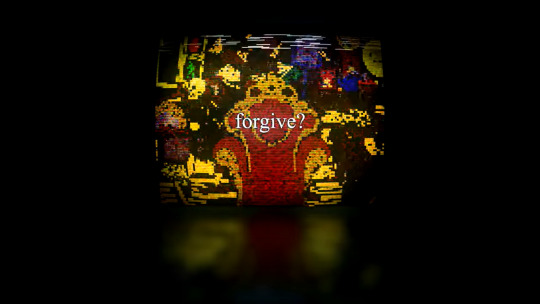
These are mainly just lyrics, but the “final verdict” part catches my eye, as I believe it isn’t in the lyrics further down the line. Perhaps it’s about the current trial? As many people believe, David did not kill Arei. His reasons for lying about doing so are unknown, but we can assume that the singer is calling the listeners idiots, because of their incorrect final verdict. Whatever David wants to do, it’s certainly not leading them to the right one.
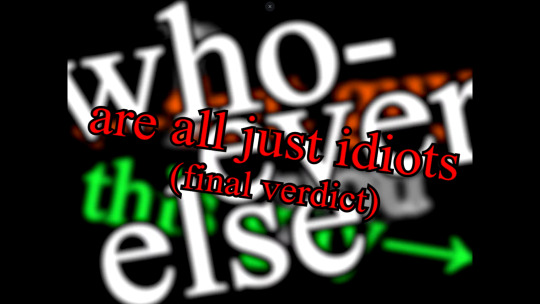
Next, these lyrics. While I believe it’s fairly obvious that the pink is meant to represent the typical Danganronpa-esque color of their blood, the color that the word “game” is in is probably relates to David. After all, his hair clips and star eyes, both prominent features of his “facade”, are in the same color.

Here is where the most prominent part of the MV is, to me. The text that flashes across the screen during transition points. The first one, in white text, is an excerpt from Osamu Dazai’s “The Flowers of Buffoonery.” The book, while I’ll spare you the greater details, greatly describes themes of suicide. The story’s main protagonist, Yozo Oba, can be described as so: “-But the narrator, a self-conscious writer, makes frequent first-person asides, breaking the fourth wall as he comments on the quality or believability of the novel he is writing.”
Something especially telling is this line, from an analysis of Yozo’s character. “Yozo is a person characterized by shame. Although I pretend to be someone who is confident and unabashedly themselves, that is not really true. I have always been ashamed of who I really am. I created a whole persona to interact with others because I believed my true self would never be enough.”
David’s character is someone very similar to that. Someone who has created a false persona to interact with others. Yozo is someone who feels resentful of other people, simply because he is forced to make them happy.
“Yozo Oba is the tortured author and unreliable narrator of the three notebooks that comprise the bulk of No Longer Human. [That is the sequel to The Flowers of Buffoonery.] His appearance is depicted in three photographs examined by an unnamed narrator in the Prologue. These three photographs correspond to his appearance in each of the three notebooks. As a child, Yozo is precocious by design—an impish child who uses his antics to hide his fear, shame, and inability to relate to humanity. These fundamental flaws carry over into young adulthood; in the second notebook, he is a handsome young man whose smiling photograph lacks humanity, betraying the depth of terror and isolation that his comical persona seeks to hide. In the third photograph and notebook, he is only 27, but his gray hair and forgettable appearance prevent him from being labeled an ordinary human being.”
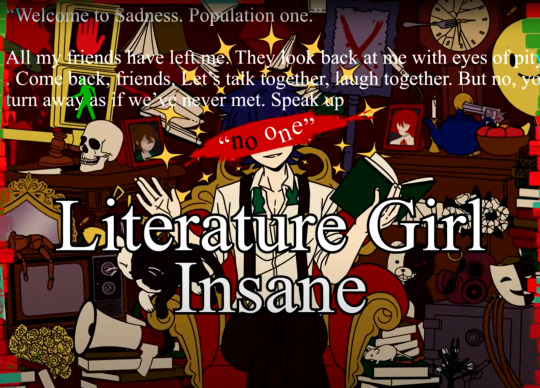
The quotes in yellow are from Agatha Christie’s “Murder on the Orient Express.” The full quote reads as follows. "If you confront anyone who has lied with the truth, they usually admit it – often out of sheer surprise. It is only necessary to guess right to produce your effect."
I think the relevancy of this line in terms of David can be explained with his actions so far. Fun fact: Similarly to Danganronpa, “Murder on the Orient Express” is a murder mystery.

This is just a rickroll. DRDTDev thinks that they are FUNNY!? (They are.)

The “an archaic personal pronoun rarely used in real life, but popularized in fiction by the book” is most likely referring to thou/thy/etc. I’m not sure what this correlates to, but it’s probably important. I couldn’t find the green text, but from what I can tell, the green text probably relates to David’s nihilistic point of view towards humanity.
Update: Bleuflower on Tumblr has located the source to be I Am A Cat by Natsume Soseki, so go check her out for that! If I had to say anything about that, it’d probably be relating to MonoTV, however, there’s also a continuation of David’s nihilism towards humanity that was also found in the Osamu Dazai references. The book itself is described as a “mordantly comic evocation of Sōseki's deep pessimism about his own humanity and indeed about humankind in general.”

The white text here is an excerpt from Osamu Dazai’s “No Longer Human,” which follows the same protagonist as “The Flowers of Buffoonery.” I’m sure you can all gather what that means in relation to David, but the main point is that he seems detached from his view of “normalcy.”
@shidoutism on Twitter had this to say, as they’ve read the book itself:
“OKOK so basically this first excerpt is from 'no longer human' by osamu dazai (its his last finished work because dazai sadly took his own life after publication of the book) now from the limited knowledge i have of david the meaning and message of the book might help in whatever analysis ur doing?? no longer human is about a man who never felt like he understood humans. like the title suggests, he never felt like a person. its revealed the protag was pretty sheltered and rich in childhood but experienced trauma from the familys housekeepers, but he never reported it. thats basically the start of it all as the protag grows up, he finds fear in communicating with humans. so he ends up either isolating himself and/or destroying all of his relationships with people. he's scared of people seeing the real him, so ever since he was a child he started putting up a happy, cheerful front. but it just creeped some ppl out bc it didn't feel genuine, it was more like a clown wanting to so badly entertain others. the protag starts resorting to bad coping mechanisms such as dr/gs and alc/hol and has many relationships with women to drown his sorrows and feel closer to being 'a human'. aaand the end of the book is kinda unsettling as the protag is sent to a rehab center and then when released, isolated himself somewhere far away without people, stating "everything passes. thats the one thing i learned in this living hell [somewhere along those lines]" and the book ends numbly like it feels like nothing”
I don’t know about you, but this sounds rather similar to our “protagonist.”

This quote is from “The Setting Sun”, by, you guessed it, Osamu Dazai. It tells a similar story, albeit with a different protagonist, but I feel like this ties in more with his facade, and how his inspirational speaking comes off to other people. Considering he is in his facade at this time of the MV, it’s safe to say that that’s what this is referring to.

And now, this all falls into place. These are the names of the Osamu Dazai books referenced in the text beforehand. The (I’m), next to No Longer Human, however, could signify how David views himself. Someone so sunken into depravity that they don’t register themselves as human anymore.

The faded text here is the first sentence of Yasunari Kawabata’s “Snow Country”. I don’t know what this refers to in terms of David, but this also seems important.

David still views himself as manipulative. Even if he does love people, even if he does have a semblance of care for those in his life, he views himself as an evil, irredeemable sack of shit, incapable of any emotion other than selfishness and cruelty.

This part is especially intriguing to me. David still wants to live, as anyone else does, but he can’t bring himself to find a reason to leave. His career is dead. He’s worthless, and nobody needs him around. Where would he go? There’s no room for him anywhere, even if he escaped, he’d just be shunned for good now that his entire life has been thrown away.
The excerpt from “And Then There Were None” by Agatha Christie, describes someone losing motivation to leave the island. The island is a metaphor for the building, that the students are trapped inside, and David has lost the will to leave in the first place. He doesn’t want to leave, because there’s nowhere else for him to even go. He doesn’t have a home. He doesn’t have a fanbase. There’s nothing left.
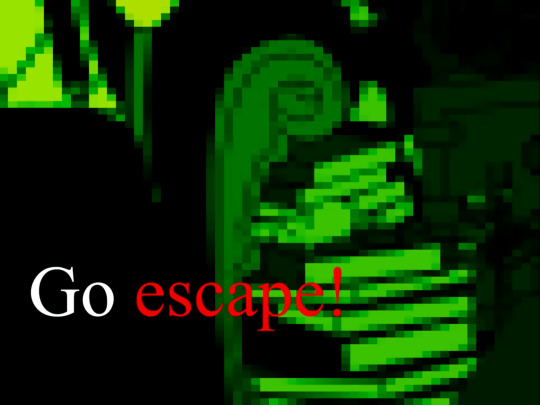
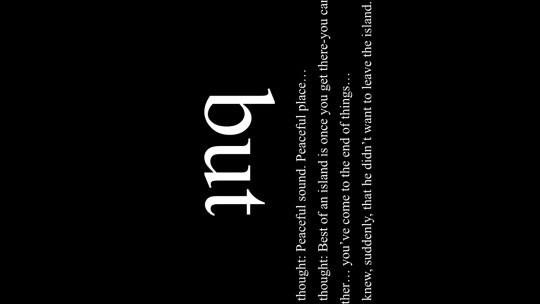

The text here reads: “If you’re Hythlodaeus, then I must be Morus.” This refers to the work “Utopia”, written by Thomas More. The book follows Raphael Hythlodaeus, a man who claims to be from Utopia, a perfect place for everyone. His surname quite literally means “Bringer of Nonsense,” or something along those lines. While this may be a stretch, I believe that “Hythlodaeus” is referring to Pre-Reveal David, and “Morus” could possibly be either Post-Reveal David or someone affected by his speeches, for example Xander.

Also, I find it interesting how the girl in this frame, most likely David’s “sister,” Diana, and David himself are both tilting their heads at similar angles. It’s possible that their relation is hinted at through this, but I’m not sure.
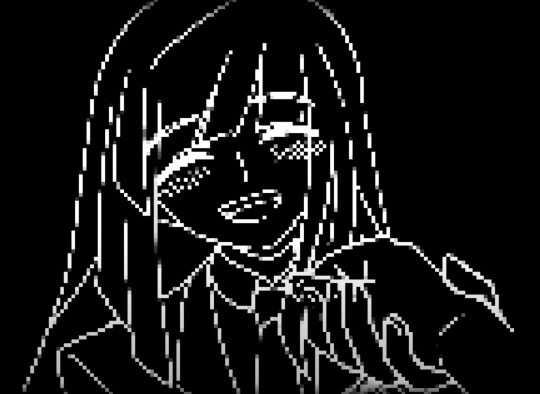
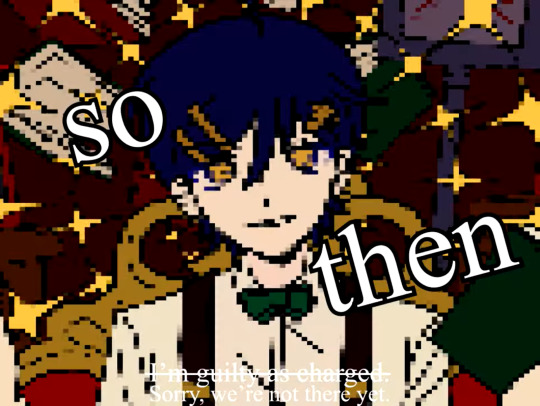
The excerpt right here is from Kajii Motojiro’s entry in the Kyoto Journal, entitled “Lemon”. While some of the text has been altered, the main story is about a man who finds himself suffering, and walks through his neighbourhood only to find a greengrocer selling lemons. He goes home, and finds himself happier than before. I’m not sure what this means when it comes to David, however if you’d like, you can analyze for yourself and let me know.
https://www.kyotojournal.org/fiction-poetry/lemon/

This part doesn’t have any external references, but I believe that the lyrics here reinforce David’s worldview, that no matter what you do and how hard you try, “nobody ever changes.”
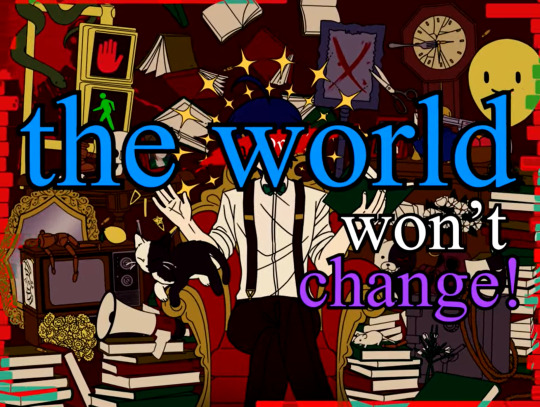
The star imagery here is a direct reference to David. Stars are representative of his happy facade, and when he loses the stars, he quits the bullshit.
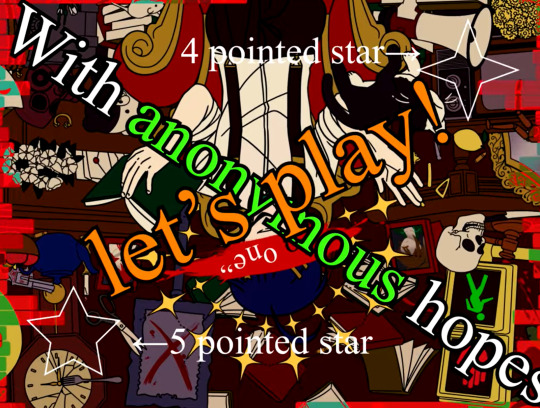
…And this frame. Alright, let’s start from the top. The electrocution definition is a callback to Xander, who’s referenced quite a few times in the video. The yellow text, which is from Antoine de Saint-Exupéry’s “The Little Prince”, is possibly a reference to David’s view on other people or himself- That nobody is special unless you were born special. However, the end of the text describes that if the boy were to tame the fox, the speaker, that they would need each other. I’m not sure if this is a description of manipulation, or a codependent relationship, but the David parallels are there. That, and the title of a “little prince” probably refers to David and how he’s idolized by many. The green text is, again, from “The Flowers of Buffoonery.” The full text is as follows.
“A man crushed by reality puts on a show of endurance. If that's beyond your comprehension, dear reader, then you and I will never understand each other. Life's a farce, so we might as well make it a good one. But real life is a realm that I may never reach. The best that I can hope for is to loiter in the memory of these four days, so steeped with empathy. Four days that count more than
five or ten years of my life. Four days that count more than a lifetime.”
In reference to David, this is more representative of his true feelings. Not the asshole persona or the facade, but the genuine feelings he has. He already feels far too gone by his own standards, and constantly puts on a “show” for other people in the form of his speeches.
The red text is possibly a person dealing with depression speaking on one of their symptoms. There’s no way I could find a source for such a short quote. A common symptom of depression is losing interest in things you previously found enjoyable.
The white text on the side describes someone who finds pleasure in solitude as opposed to being bossed around by other people. It’s a reference to David’s backstory, as someone who was pressured into putting on a performance for others, finding comfort in being alone rather than having to play pretend whenever around other people.
The white text at the bottom is a continuation of the white text at the top.
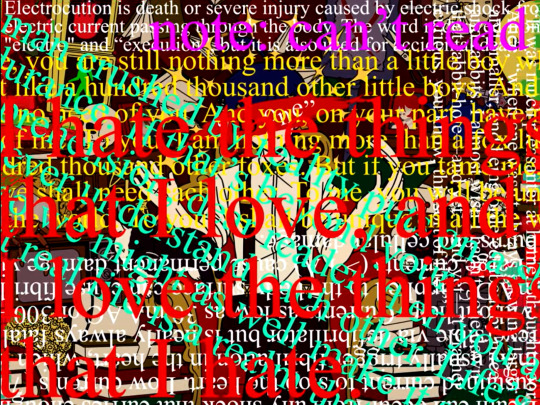
The only theory I can think of for this is that it’s a foreshadowing to either gaps in their memory or the amount of survivors left in the killing game being four. Not sure.
Update: I don’t know how I missed this, but the “11” next to the suspicious gaps refers to this. It’s possible that the suspicious gaps are gaps in their memory now, being as he doesn’t remember having an older sister, but her existence is most likely confirmed, as we saw her.
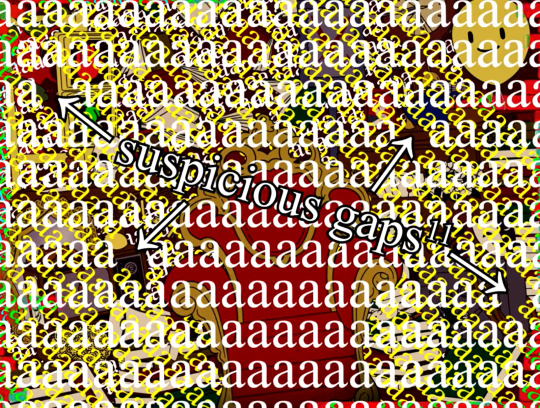

This part here is referring to “Catch 22,” when the main character realizes that without a soul, humans are just… matter, if you will. Empty husks.
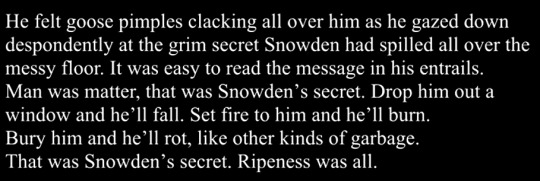
For this part, I had to call upon my not-so-trustworthy old friend, Google Translate! The translation of this from Latin is “I think, therefore I am (not.)” That’s what makes the most sense to me. We’ll refer back to this part later, for I have a different intention for it in my mind than David himself.
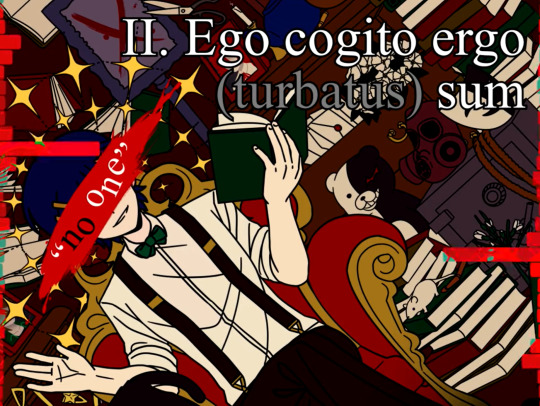
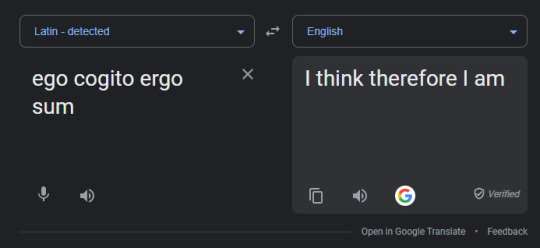
The dark blue text is another excerpt from “The Little Prince.” The prince in question is talking to a castaway, and the main takeaway of his words is that only your heart can tell you what you really need. If you were to simply look with your eyes, then what you truly need would be drowned out by the blinding light of superficial desires. I’m pretty sure that’s what that means. David is looking through his eyes, seeing a cruel world where nobody changes unless they were born to.
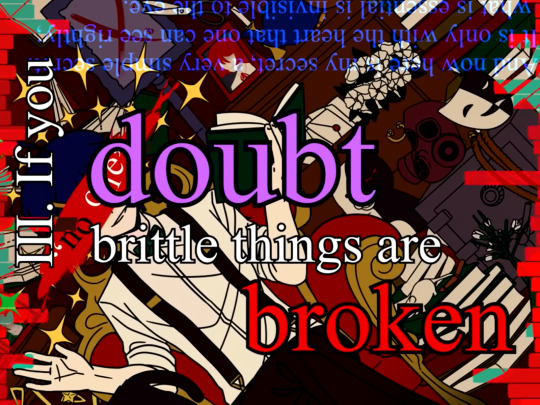
Now, let’s get into the next big part of the MV: The crossword puzzle. You might be wondering how this relates to David, but its moreso his own commentary on his classmates. Let’s go back to the latin. Pay attention to this reference of the solved crossword by raspbeyes on Tumblr. It will be very important for you to follow along.

Notice how there’s roman numerals in some of David’s lyrics? For example, this that we established earlier meant “I think therefore I am (not.)”
This is referring to Rose. Her photographic memory can be linked to the description of “thinking.” The context of this may become clearer in future parts of the story.

III. That’s Charles. “If you doubt brittle things are broken.” Is, in my mind, referring to his memories. He has a recurring element of not remembering things, but he doesn’t seem to be aware of this until Chapter 2. For example, his secret- “Your older brother died, but you don’t remember him at all.”

IV. Arei. Her breakdown sequence should be all you need to associate this with her.
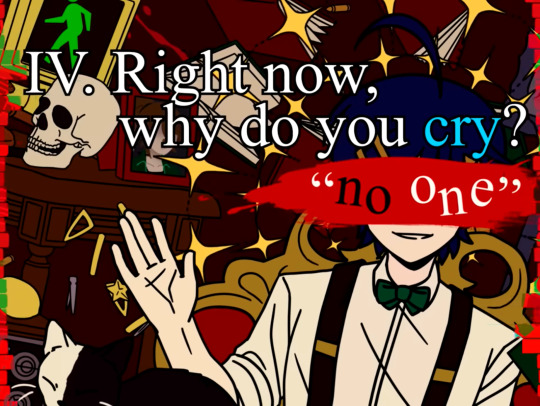
V. This is Ace. He’s going insane, obviously, because of the paranoia and failed murder attempt against him. That, and he’s become more disheveled as the game progressed.

XIV. Veronika, correct? Substance to the arts relates to her talent as a Horror Fanatic. Naturally, she’d be related to things like that.

XV. Whit’s refusal to accept his mother’s death, staying ignorant to the tragedies around him, is one of the “happiest” members of the cast.


XI. Mai Akasaki is not mentioned in the current story, and all of her quotes hidden amongst the cast members describe her in past tense. She was someone everyone viewed as reliable, trustworthy, and perhaps, if you exaggerated it, as God.
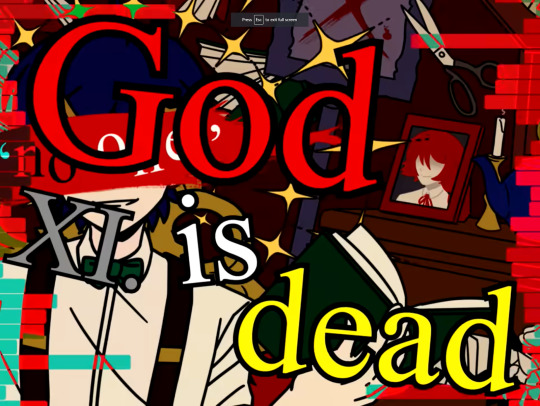
These two walls of text are both from the same source: Hamlet’s Solliloquy of “To Be, or Not to Be?”

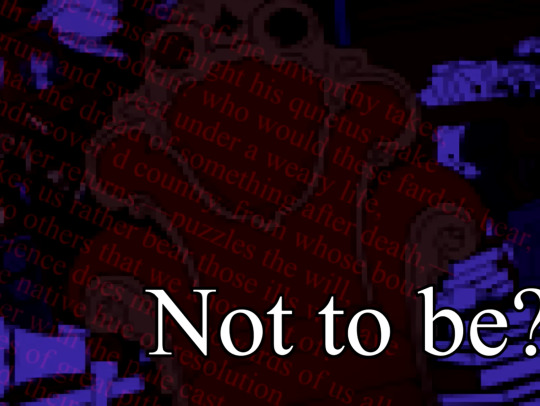
This is what the thing actually means, in case you aren’t aware, which even I wasn’t until just now. It represents David’s suicidal ideology, from what we can assume with the way he’s trying to get everyone to vote wrong in the trial for Arei, quite well. Whether he wants to live, or die, is most likely a constant struggle for David to answer.

Which is why he leaves it up to… whoever can answer.


This is an absolute reference to the trial. The class trial rules are overlaid over the death portrait texture, which is “conveniently” covering David’s face. The seventeen here is also telling, considering what the description has to say about it!


This is what I believe is David’s end goal. To get everyone executed as a result of his own hopelessness. By pretending to be the killer and antagonizing the class, he believes he can easily sway the votes by “manipulating the public” as he always believes he’s done. By getting everyone to vote for him, he can end the killing game and his own “pathetic life” in one fell swoop.
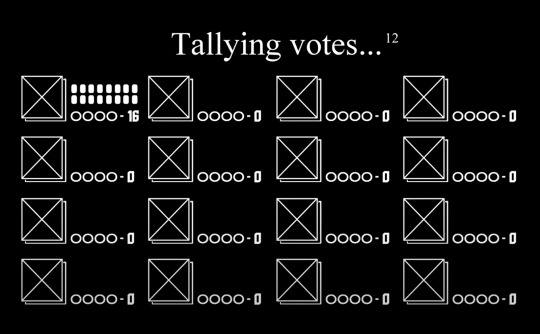
After all, it’s not like he believes they have a chance of winning and escaping in the first place.
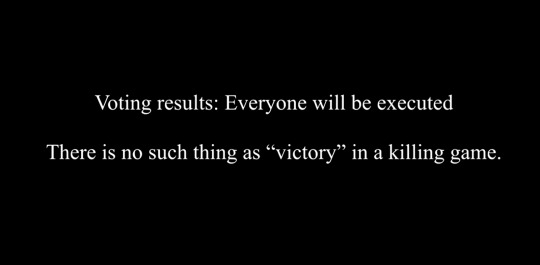
And here, is where we left off in Episode 11. David completely drops his facade in order to effectively kill himself, along with everyone else. After realizing the hopelessness of his situation, he makes a drastic turn to accept it readily. Someone who self-sabotages continues to do so because they develop a warped perspective of having control.

And again referring to the description, the 12 near the “Tallying Votes” caption refers to this. It’s David’s way of justifying his selfishness, with a diluted form of justice serving as an “ultimately fair verdict to the trial.”

However, David has always wanted to be loved. It’s why he even bothers with his facade, because he’s been putting it up for so long that disregarding his persona would effectively ruin everything he’s worked so hard to maintain in the first place. The repeated imagery of applause could also be a callback to his status as a celebrity, especially with how he reacted to Xander and Arei’s reliance on him.
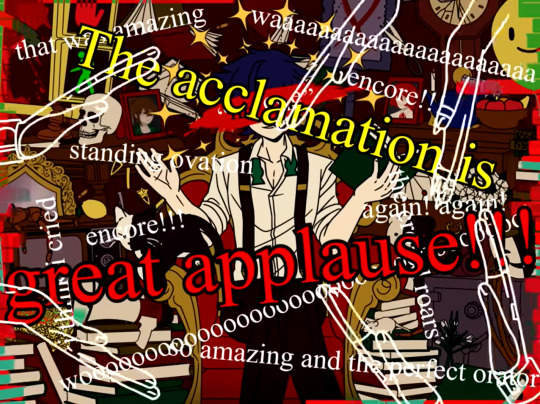
While this does have a small fade of text pointing out that the “degraded copy” is the cover, which is not true because the MV is amazing, but. I believe this–

Oh. That’s literally it. Well, that makes one mystery solved!

Hey, look, we’re already halfway through! nice!
Eden’s optimistic personality can be referenced here. She wants to live with everyone, together, and make sure that nobody gets hurt.
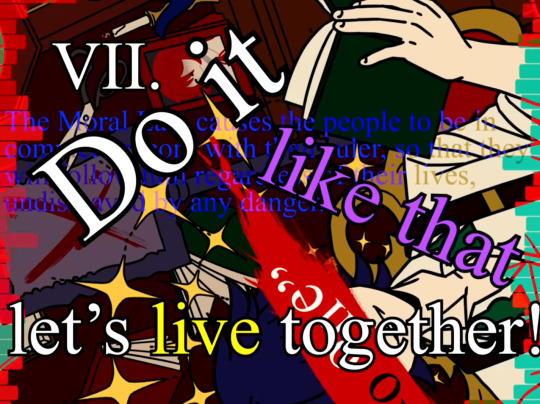
This is another reference to David’s rambling on about how attempting to change is utterly futile, and that nobody changes.

The yellow text is the definition of a television show, I believe. The blue text is an excerpt from “And Then There Were None,” by Agatha Christie. The full quote is this: “Breakfast was a curious meal. Everyone was very polite…. Six people, all outwardly self-possessed and normal. And within? Thoughts that ran round in a circle like squirrels in a cage…. ‘What next? What next? Who? Which?’...”
…Do you get it? It’s a parallel to the killing game. Or, rather, how David views it. Everyone is terrified and scared for their lives, but they still greet eachother with mock kindness.
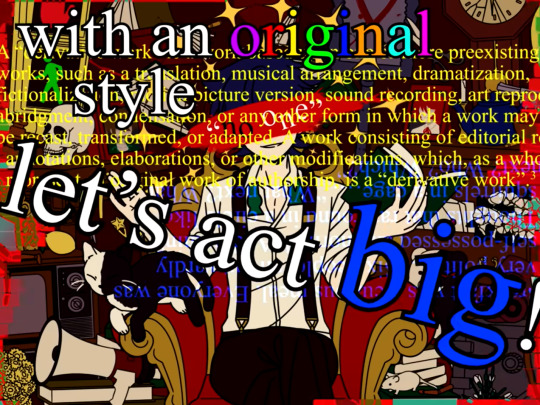
The blue text on the side is an excerpt from Shakespeare’s “Macbeth.”, and it goes like this: “I am in blood / Stepped in so far, that, should I wade no more, / Returning were as tedious as go o'er.”
A critical analysis of the original work reads as follows:
Shakespeare is saying here that Macbeth has involved himself in so many murders that it is as easy for him to carry on than to turn back. Macbeth compares his course of action with wading across a river of blood, creating a vivid image of his bloody reign. The word 'tedious' reveals the hardening of Macbeth's heart.

And now, the moment I’m sure most of you have been waiting for. Xander. Something I took notice of was that the cracks line up directly with his left eye, while his right eye is the one that’s actually missing in the game. Nonetheless, Xander clearly did mean something to David. Whether it be through his idolization of David, or if he inspired David in some way, his death had an impact on him. Manipulative persona or not.
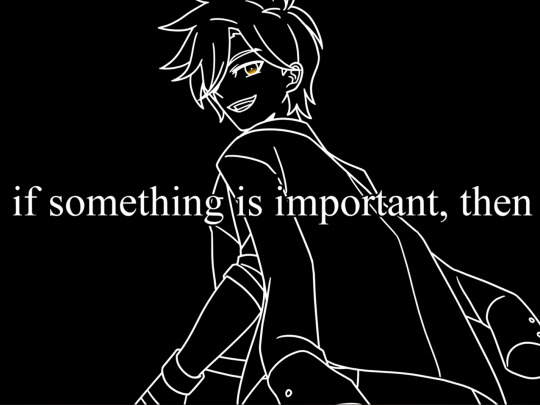
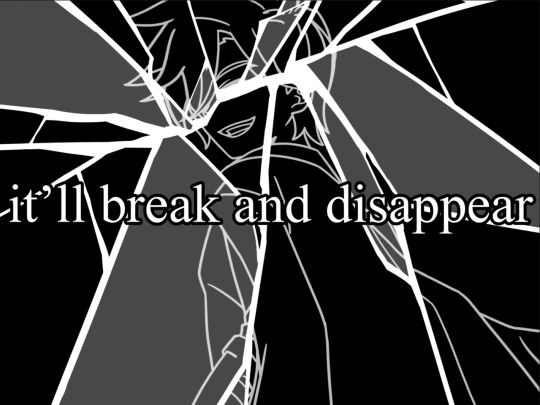
XVI translates to Hu from the crossword puzzle. He’s taunting her, similarly to how he did in the trial, although the ??? makes me wonder if it actually IS David…

XII, that’s Eden. I assume it’s because of her optimistic persona that she is standing in someone’s way, although we’re not sure who.

For the next part, let’s say we take this at face value. It could definitely be referencing David allegedly pushing Arei to commit suicide, although this could also be something he internalizes, with the themes of suicide and wishing to be dead explored previously.
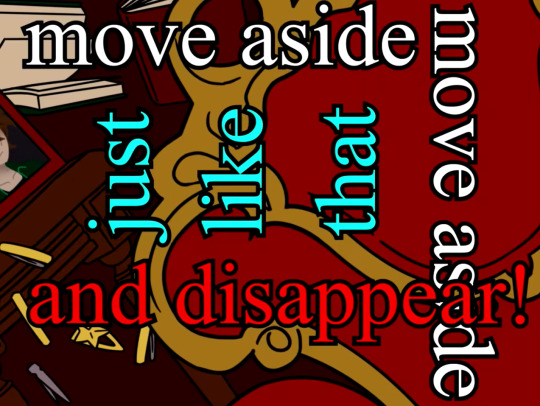
These are all repeats of the previous works included in the MV, like The Little Prince, Ozamu Dazai’s series, Agatha Christie’s works, etc etc.
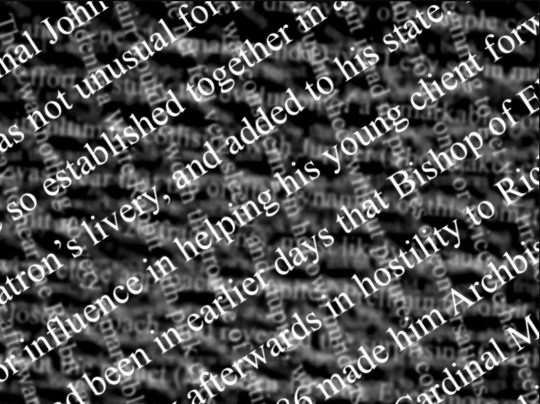
Now, this is code, I’m assuming, but I tried translating it and couldn’t find anything. It’s a common encryption language. In case you want to translate it, it’s:
3aqxw97pktc8uki458fbdpfoacllex2f07bf8mg24b4mpfx2adc6v3f5yhxjd8i7sf11312zaj5lazet47jod5jczec5mvb6bz2o59r143sf2pe916sczcn7emvbl55ehe9iqb2708tt83482c8tw3c77gn47ojca634gbcfz0016s647wwlakcn46brcle0eam9
NOTE: @glorywelpchild on Twitter says…
“For this, it may have been encrypted multiple times by different engines? I'm not a programmer so I'm not really familiar lmao. Another thing, it could be a type of programming the dev knows/commonly uses.”
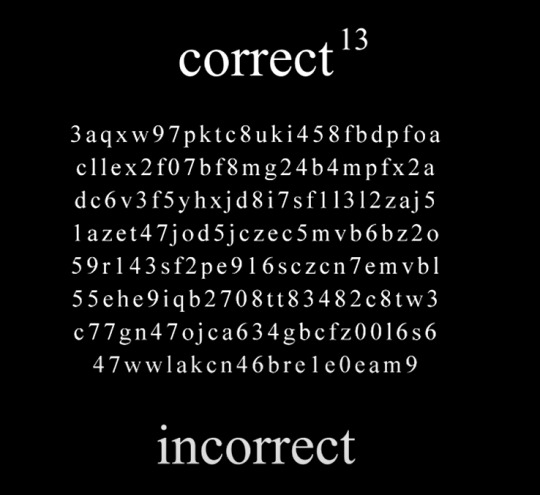
The VI here is Arturo, but I don’t know what this means. Perhaps the description can give us some insight?
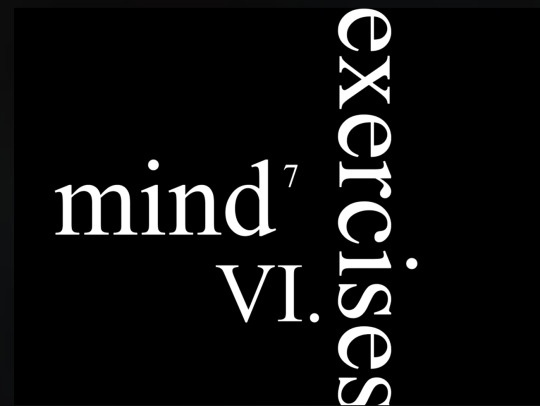
Hmm… Well, I don’t mind. Whatever you say.

Nico’s number is VIII, and this is referring to the defense they put up when asked about their intentions against Ace’s life. They claim they never thought about it, and “even if they try to think, they don’t know.”

This is Levi’s, as per the IX.
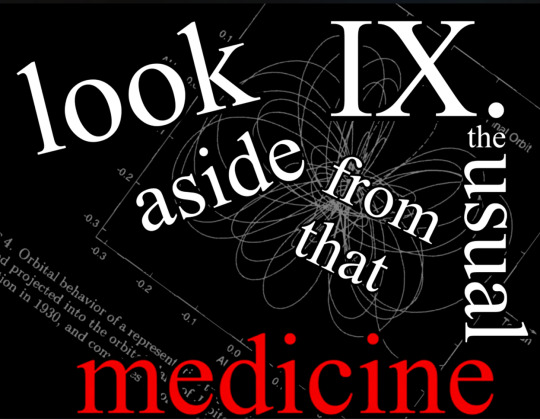
I actually managed to find the original image in the background. It’s a study on Comet Shoemaker-Levy 9’s orbit around Jupiter for several years before crashing into the planet. While the name, Shoemaker Levy, may be a play on Levi’s name, I believe this is also referencing that he may die soon. Maybe this is a stretch, but the symbolism of a comet named “Shoemaker Levy” crashing into Jupiter being right under a symbol that represents Levi, our prime suspect in a game where being caught results in death, is too far to be a coincidence. Part of my theory for Chapter 2 is that Levi is the blackened, after all, but that is in a previous post. Nonetheless, we can move on.

This is “Enterance of the Gladiators.” While it is now associated with silly things like clowns, it was originally a military march song. Hmm, where have I heard this description before?
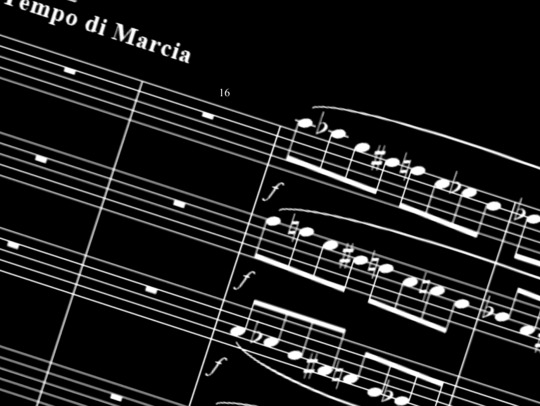
Ah, that’s right! In the description!

These two are relatively straightforward. The David we meet in the prologue is his facade, and it serves as an introduction. However, we are re-introduced to him with a whole personality change, and that comes delayed from all the others.
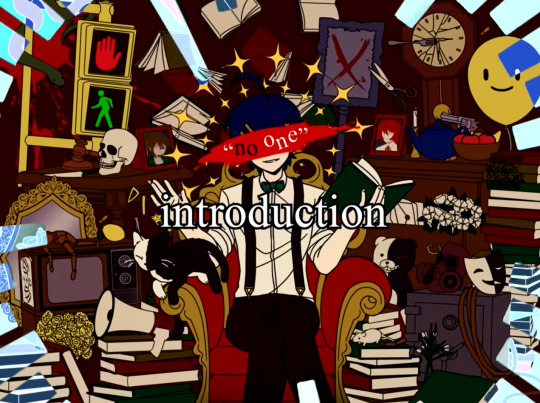

This is a direct reference to MonoTV and the throne in the trial room.

The truth bullets. Typical Danganronpa symbolism, and it’s also a neat little reference to Xander’s custom weapon.
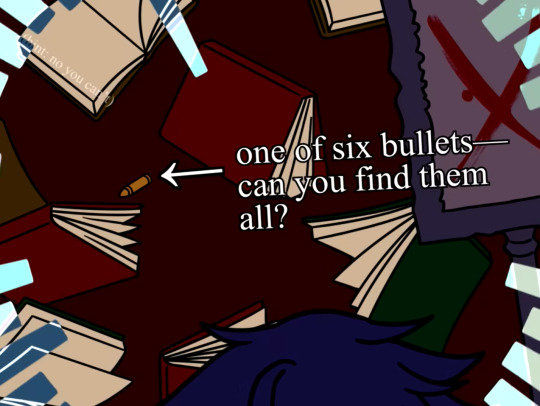
References to some of the students. The dresser is Levi, the bowl of fruit is Rose, the gun is Xander, the teapot is Hu, and the candle is maybe J?
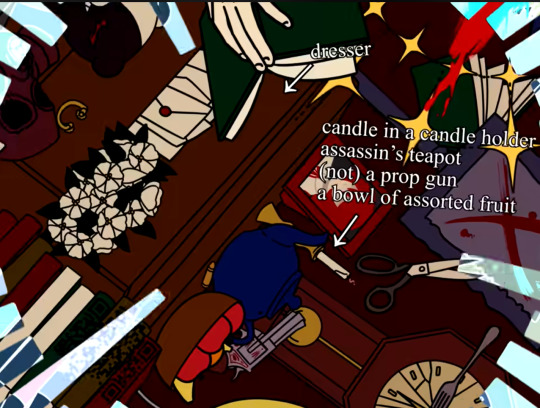
The clock is Eden, the portrait, maybe a reference to the game? The stupid kid’s toy might be Whit.
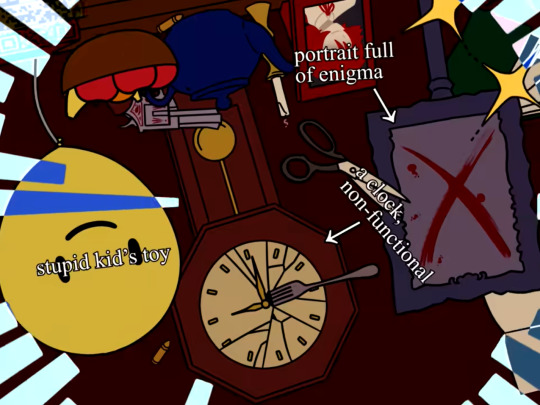
Teruko and Mai. Teruko’s misfortune and Mai’s idealization are both key parts of their characters.
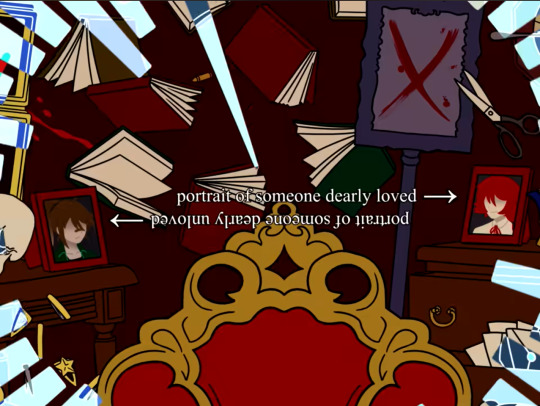
The gavel, another reference. The kitchen knife, Min. The skull, Veronika. The mirror… Possibly Xander because we’ve seen him with broken glass earlier in the MV, but it might be David and his personas making another reference.
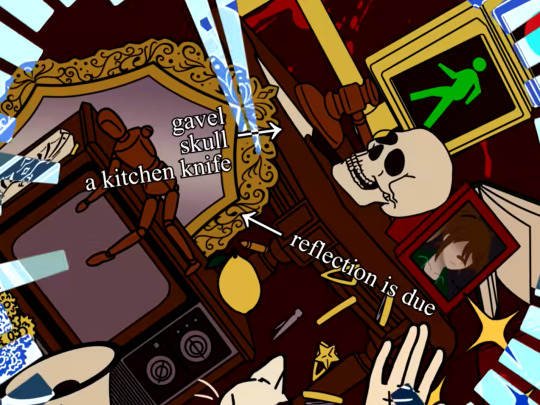
The mastermind, sitting atop their comfortable chair.

The noose is Arei, the gas mask is Charles, the mouse is Nico, the theater mask… Perhaps the mastermind again, or Veronika again. The safe is David’s locked away and suppressed emotions. These are all mainly theories based on observation, don’t take it as the wholehearted truth.
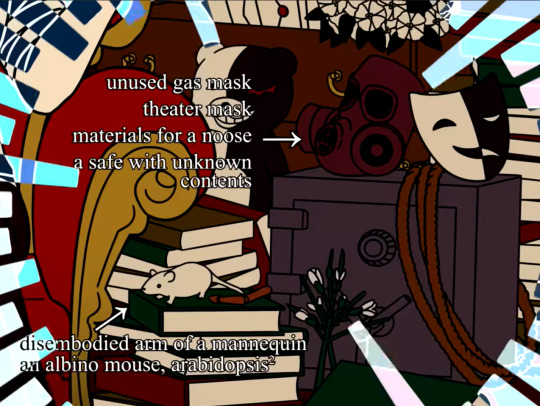
David being mentioned again with the hair clips. The lemon has been brought up beforehand, it’s a callback to the journal entry. The dummies represent David’s detachment from his humanity, and the television is a callback to the fact that they’re on a television show.

David views himself as a snake, a liar, a murderer. Snakes are common imagery to use when referring to the Devil as well. The blood is a callback to the killing game itself.
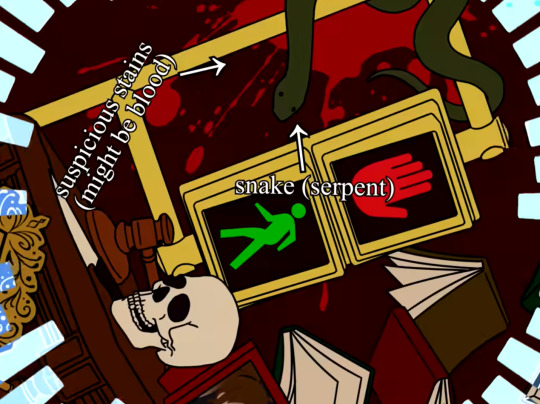
Either a reference to Min, or the fact that all the books are empty could be visual dramatization of David’s feelings. There’s supposed to be something in them, but the books are empty. The “various kinds” could also be how many personas he puts on, if that’s a prominent part of his backstory.
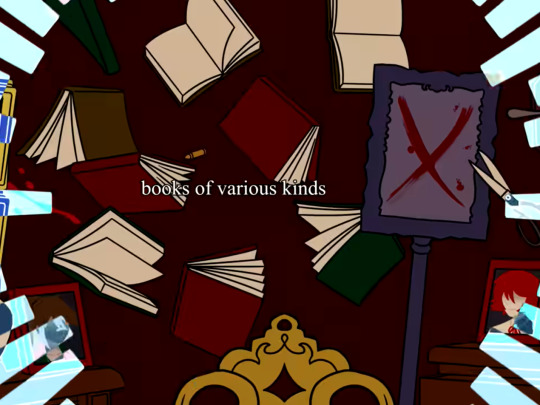
The killing game is being broadcasted, so that counts as terrorist iconography, if nothing else. Dandelions, while beautiful in their own way, don’t belong in a garden. The megaphone is David’s custom weapon, and it’s a way for him to broadcast his speeches to those around the world.
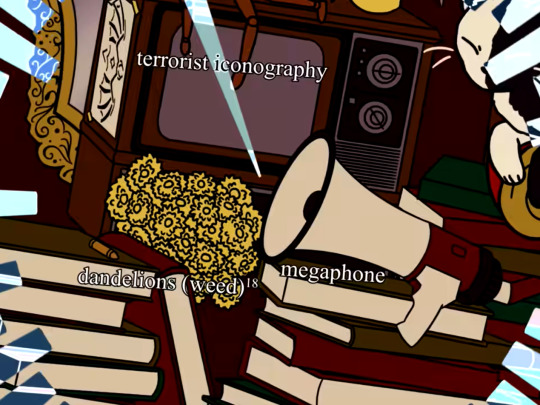
The letters are from the joke comic that the dev released. You know the one, where Xander writes a letter for David and he accidentally throws it away thinking that it’s garbage. The popular toy refers to the commercializing of the Tragedy, as Veronika explained on the first day of Chapter 2. How horror movies will put black-and-white designs in their films to up the fear factor because of the subliminal/primal fear of the design back in the days of the Tragedy. The flowers… No idea.

This is cleverly disguised, but it’s a reference to the debate between continuing to live and killing yourself. To be or not to be, to stop or to keep going, but they’re both lit up. How are you to do both at the same time? You have to make a choice.

Main Roles are David and Xander. It makes sense, considering they both have full-body moments and we know who they are. The crossed out name is Mai Akasaki, but the cut off name is a bit harder to decipher. Thanks to some inspiration and help, I’ve come to my final conclusion regarding this.

They are related to Arei, 100%. The letters match perfectly.

Even in comparison to Arei, the “N” in her name starts only a bit earlier, but that’s because the first word is probably only two or three letters, in comparison to the four letters in Arei.

Originally, I couldn’t translate any of these. All I could make out was that the first hand was Xander and the second hand was Min or Mai. However. @MAHIRUMILGRAM on twitter managed to translate them! They are as follows:
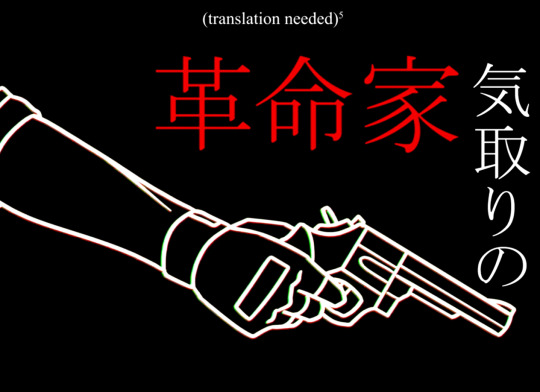
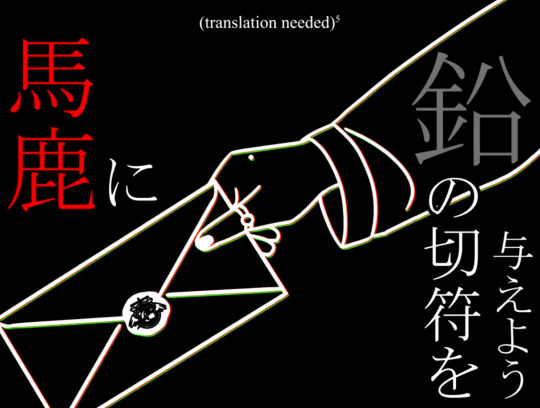

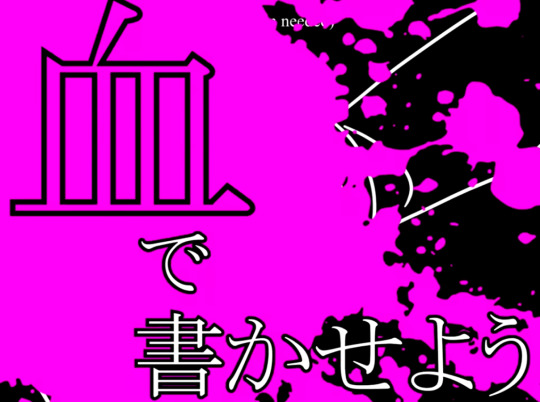

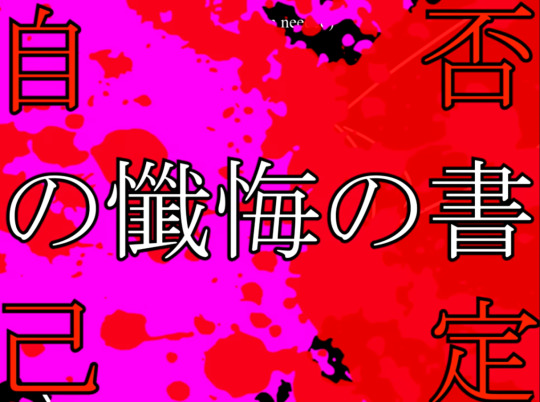




After this point, the truth bullet breaks through David’s words, similarly to how Teruko is fighting against David, despite the truth bullet being in agreement towards David’s idea.
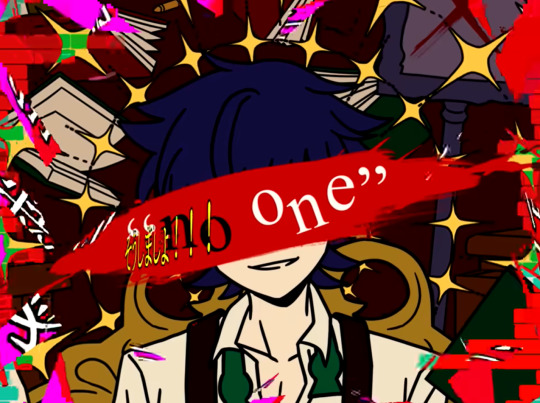
There’s also this, which could be David trying to deflect us from the truth, or that the lyrics genuinely don’t relate to him. I’m leaning towards the former.

The white text at the top here is from a story, entitled “The Ones Who Walk Away from Omelas.” It is about a beautiful city where everyone is happy. However, their city is not as beautiful as it seems. They tell the story of how the townspeople have locked a child in a basement, and left it to suffer. Their happiness, as they’ve been told, requires a sacrifice.
“Inside the room, which is behind a locked door, there are a couple of dirty mops, a bucket, and a young child. The child is ten years old, but looks younger. The child is scared and completely miserable. It is never allowed to leave the room. Occasionally, someone opens the door and kicks the child to make it stand up. The person fills the food bowl halfway with corn meal and grease, fills the water jug, and leaves. The child can remember what the outside world looks like and begs and pleads to be let out. The child is naked and covered in sores, and it wails at night in its misery. The people of Omelas all know about the child in the basement. They all understand that everything good about Omelas, from their abundance of food to the good weather, depends upon the suffering of the child. They all understand this because when children are between the ages of eight and twelve, they are brought to see the child, and this tradeoff is explained to them. During this experience, the children of Omelas are disgusted. They want to help, but they are told they can’t. If anyone helps the child by clothing, feeding, or otherwise caring for it, then the perfect happiness of Omelas and its abundance would die. Therefore, no one may even speak kindly to the child.”
I wanted to include this because it describes David so well. Someone who has been cast away because they’re deemed useless to society, someone who’s happiness would destroy the happiness of anyone else. I find the story truly fascinating, as it might describe David’s suppressed emotions and the depressive tendencies he indulges himself in.
“Their tears at the bitter injustice dry when they begin to perceive the terrible justice of reality, and to accept it. Yet it is their tears and anger, the trying of their generosity and the acceptance of their helplessness, which are perhaps the true source of the splendor of their lives. Theirs is no vapid, irresponsible happiness. They know that they, like the child, are not free.”
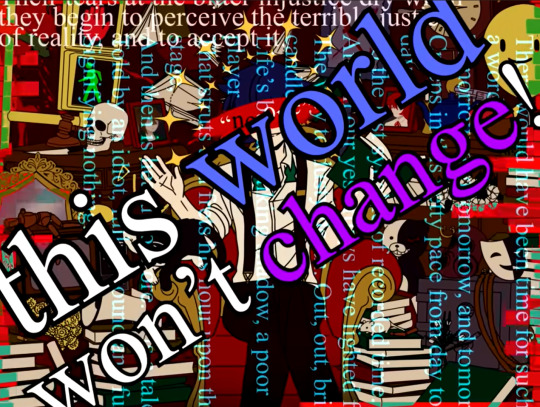
“How you have felt, O men of Athens, at hearing the speeches of my accusers, I cannot tell; but I know that their persuasive words almost made me forget who I was—such was the effect of them; and yet they have hardly spoken a word of truth [alēthēs]. But many as their falsehoods were, there was one of them which quite amazed me—I mean when they told you to be upon your guard, and not to let yourselves be deceived by the force of my eloquence. They ought to have been ashamed of saying this, because they were sure to be detected as soon as I opened my lips and displayed my deficiency; they certainly did appear to be most shameless in saying this, unless by the force of eloquence they mean the force of truth [alēthēs]; for then I do indeed admit that I am eloquent. But in how different a way from theirs! Well, as I was saying, they have hardly uttered a word, or not more than a word, of truth [alēthēs]; but you shall hear from me the whole truth [alēthēs]: not, however, delivered after their manner, in a set oration duly ornamented with words and phrases.”
Do you remember, in the prologue, where Xander describes the “rumors” against David’s positive front? This is a direct parallel. Here, Socrates denounces the words of his attackers, similarly to how nobody truly believes the rumors except for the critics themselves. Even Xander was fooled by his charisma.
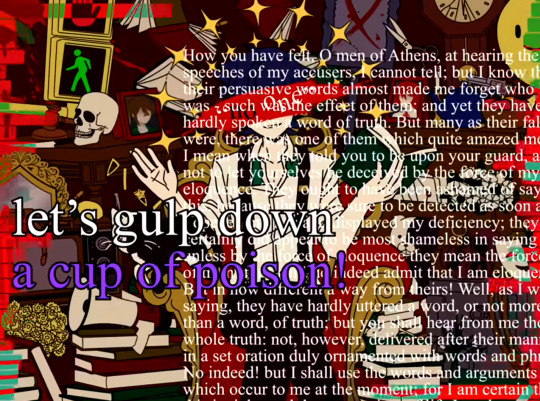
“Was't Hamlet wrong'd Laertes? Never Hamlet: If Hamlet from himself be ta'en away, And when he's not himself does wrong Laertes, 240 Then Hamlet does it not, Hamlet denies it. Who does it, then? His madness: if't be so, Hamlet is of the faction that is wrong'd; His madness is poor Hamlet's enemy.”
Hamlet blames his own insanity for the death of Laertes’ father. Just like David tries to get everyone killed, and blames himself for murdering Arei, because of his own insanity.
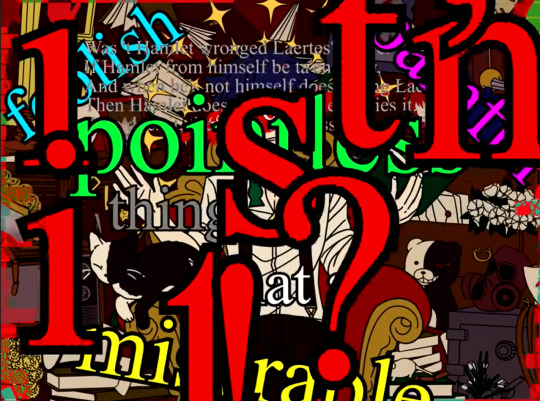
This is a line from the poem “Be Not Defeated by The Rain,” by Kenji Miyazawa. It describes a man wishing to become someone strong, someone who cannot be bested. I believe this is exactly what David wants, too. To be as strong and as hopeful as he is forced to pretend to be, instead of a hopeless mess who would rather die than be seen as worthless.

David reaches the height of his insanity, before finally quieting down after being basked in green light. I don’t know if this was intentional, but I believe that it represents how he’s given up on even death after the students manage to vote correctly, hence the green coloring.

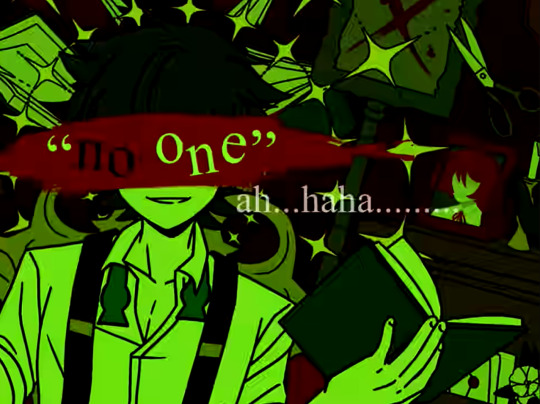
And now, number 19.
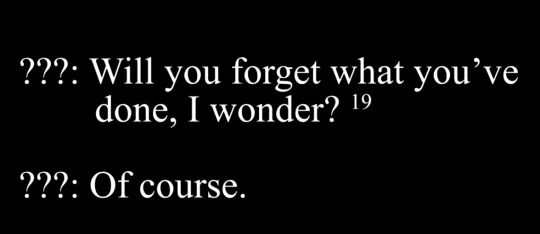
I severely doubt that David will actually die in Chapter 3. That is not “foreshadowing,” that is just giving out the answer, and DRDTDev is much more careful than that. I believe this is a final representation of David’s suicidal ideologies. He says he will forget, he says guilt will not weigh him down, but he’s lying to himself. That’s why the stars are still behind him, because he’s still lying. He says he is satisfied, he says he’s okay with death, but when has David ever been truthful with us?
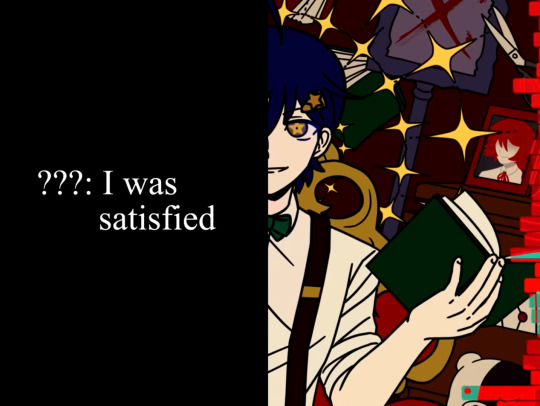
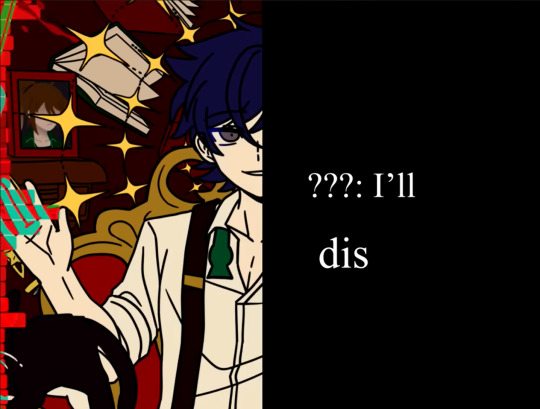

And he leaves an empty throne behind. Not because he is dead, but because he has relinquished his career and his reputation for nothing.
Even though he is missing, nothing else has changed. That is how he views his life.

And that concludes the main analysis of David’s MV! It’s such a beautiful thing, really, I don’t know how to phrase any of it properly. Thank you to everyone who’s read this far, and everyone who helped me out. The decoding and puzzles? Ah, I’ll let you all do that… But, maybe I can help a little!
Blanket, out~! See you all next time!
#danganronpa despair time#david chiem#dr#mv analysis#WOOH THAT TOOK ME 6 HOURS.#levi fontana#nico hakobyan#mai akasaki#ace markey#veronika grebenshchikova#eden tobisa#teruko tawaki#hu jing#arei nageishi#whit young#charles cuevas#rose lacroix
149 notes
·
View notes
Text
Sin?

(For someone who said I never talk about sin)
What is sin?
When we think about sin, usually the first ideas that come to mind are things like the Ten Commandments, the seven deadly sins (lust, gluttony, greed, sloth, wrath, envy, and pride), and other obvious examples.
The thing is, sin isn’t limited to those great scarlet sins of commission.
Because sin isn’t about any specific list of “thou shalt nots.” Sin is really about the effect that something has on us.
I’m talking about what sin does. And what sin does is separate you and me from the One who loves us best. Sin gets between us and God. That is what makes something a sin.
The lists of “thou shalt nots” are part of that.
The Ten Commandments, pride, envy, all those things? Those are just universal problems that plague every single one of us.
The thing to know is that sin doesn’t stop with a list of “thou shalt nots.”
The truth about sin is much more subtle, and much more dangerous.
Because anything that can do the job for us, anything that is capable of getting between us and God? That is a sin, for us.
That’s why anger can be a sin. Because it can get between us and God.
That’s why resentment can be a sin. Because it can get between us and God.
That’s why fear can be a sin. Because it can get between us and God.
That’s why bitterness can be a sin. Because it can get between us and God.
That is how you and I have to look at it.
Because anything that is capable of separating you from God? That, for you, is a sin.
That’s true, no matter how small or harmless it may look.
It’s also true, even if it’s not sin for someone else.
For me? There’s a reason why I don’t gamble.
For most of us, gambling is innocent entertainment. Good for you. Thank you for supporting our bingo night.
But for me? It wouldn’t take long for gambling to get out of hand. It wouldn’t take long for gambling to come between me and God. That’s why gambling is a sin for me. So I avoid it.
That is the truth of sin.
Because anything that is capable of separating you from God? That, for you, is a sin.
If you’re honest, you know what those things are for you. So does God.
God knows everything about you, including how those things that separate you from Him mess with you. How they leave you feeling stuck or anxious. How they leave you fearful or angry. How they leave you empty.
And that is what Reconciliation – confessing our sins – is about. Not because God wants to beat you and me up about our sins.
But because that’s not how God wants you to live. God did not make you to live feeling stuck or anxious, fearful or angry. God did not make you to live empty.
God made you to live joyfully, overflowing in His love and abundance.
The first step to getting there? Let go of the things that are coming between you and God. Let go of your sins.
Push them away from you. By name, hand them over to the God who loves you.
In the Sacrament of Reconciliation, priests are in persona Christi, holy instruments of God’s grace and mercy waiting to be poured out just for you.
Not to blame or shame, but to absolve you and to rejoice with you.
Because that is the secret of Reconciliation. One of the greatest joys on this side of eternity is the feeling in your heart after a good confession.
This Lent, make time for you, for your spiritual health. Take a moment to let go of all of the things that are coming between you and God. Hand over all of your sins. Hold nothing back.
Because the God who loves you too much to let anything come between you and Him, delights in mercy and is waiting with open arms to forgive you.
Today’s Readings
#Sin#Reconciliation#Getting between you and God#Joy#Empty#Fear#Anxiety#Anger#God's Love#God#Jesus#Catholic#Christian#Church#Catholicism#Confession#Forgiveness#Moments Before Mass
23 notes
·
View notes
Text
Gathering of the Greatest Gumshoes - Number 3
Welcome to A Gathering of the Greatest Gumshoes! During this month-long event, I’ve been counting down my Top 31 Favorite Fictional Detectives, from movies, television, literature, video games, and more!
We’ve reached the Top 3 of the countdown!
SLEUTH-OF-THE-DAY’S QUOTE: “It is the brain, the little grey cells, on which one must rely.”
Number 3 is…Hercule Poirot.

Earlier in the countdown, I spoke of Agatha Christie – a woman many consider the greatest mystery writer of all time – and one of her two most popular creations, Miss Marple. I mentioned then that another of her characters would appear later in the list. Well, ladies and gentlemen, now is the time: this is Christie’s other most popular character, if not her most popular PERIOD, Hercule Poirot. Poirot is arguably the definitive example of the “Gentleman Detective.” Inspired by Sherlock Holmes and Poe’s C. Auguste Dupin, the character initially started off very much in the Holmesian vein, in terms of personality and methods. Very quickly, however, he began to evolve into something else entirely, and ultimately became a figure who easily rivaled Conan Doyle’s famous creation, stepping out of the shadow of past inspirations to stand on his own.
Hercule Poirot is also an example of the classic “unlikely detective,” much as Miss Marple would be. (Poirot predated her by at least ten years.) However, he is drastically different in many ways. For one thing, there is their core philosophy: Miss Marple is essentially a very cynical character. Underneath her kindly and humble demeanor, she’s a jaded lady who is no longer surprised by horror and death, having seen so much of it. Poirot, however, is sort of a romantic idealist at heart; he believes that good is something to be rewarded, evil something to be punished, and feels that crime is something out of the ordinary. Of all things, it reminds me of the difference between two famous superheroes: Batman and Superman. Batman is someone who feels crime is commonplace and tries to fight against it, while Superman feels people are inherently good and tries to uphold it.
Poirot is a small, rather foppish fellow; obsessively neat and tidy, with a fastidiously-tended moustache, who dresses in the finest of fashions and makes a point of keeping good hygiene prime in his mind. Poirot is indicated to have something like OCD (something later adaptations would latch onto with a passion), being highly meticulous, at times even to a fault, and obsessing over making sure everything in his life is neatly arranged and organized. While Sherlock Holmes typically relies on deductive reasoning and physical evidence to solve capers, Poirot is arguably the first proper criminal profiler in literary history: he looks at a scene and determines what doesn’t fit the picture, his obsessive persona quickly finding incongruities, and then tries to figure out the kind of person who would commit these crimes, and why they would do it. He often uses bluff and deception to outwit his opponents; much like Columbo would do many years later, his demeanor is sometimes his greatest weapon, as folks rarely feel threatened by this rather stuffy Belgian with an egg-shaped head, and thus underestimate him entirely.
The behind-the-scenes relationship Christie had with Poirot was stormy, to say the least. Even as the character evolved, and his popularity swelled, Christie grew increasingly dissatisfied with her own creation. She was once quoted as saying she had come to see Poirot as an “egocentric little creep,” and that she only continued writing for him because he was popular with the readers. Much like Conan Doyle had tried to do in the past with Holmes, Christie eventually decided to kill off her character…but unlike Conan Doyle, she actually succeeded in keeping him dead! The final novel, “Curtains,” was highly received, and Poirot’s literary death so rocked the world, the New York Times even published an obituary: to date the first and only time the prestigious news agency did so for a fictional character.
Of course, this was not the end for Hercule Poirot. By the time Christie killed him off, he was already a well-known and adapted character, appearing on radio played by Orson Welles, and on film in what many argue is one of the greatest mystery movies ever made: the 1974 adaptation of “Murder on the Orient Express.” There he was played by Albert Finney. Later actors to portray the character have included Peter Ustinov, Ian Holm, Alfred Molina, Jason Alexander, John Malkovich (who was AWFUL in the role, for the record), and, most recently, Kenneth Branagh. The character was also one of the titular co-stars of the anime “Agatha Christie’s Great Detectives Poirot & Marple,” which I spoke of earlier in the countdown.
By far the most successful onscreen portrayal of the character, and the one most people (myself included) consider the definitive take on the Belgian gentleman detective, is David Suchet (pictured here). His was the star of a very long-running TV series simply titled “Poirot.” The series initially started out as a straightforward adaptation of all of Christie’s Poirot stories, but – as time went on – it began to take more liberties with the source material, and added a few new dimensions to the detective by emphasizing elements of his personality that Christie had only briefly brushed the surface of in her work. Whether you love Suchet, the books, or any of the other great interpretations of Poirot most, it’s clear that “the little grey cells” continue to serve this fellow well.
Tomorrow, we’ll feature our penultimate gumshoe, with Number 2!
CLUE: “I Am Vengeance.”
#list#countdown#best#favorites#top 31 fictional detectives#gathering of the greatest gumshoes#number 3#hercule poirot#poirot#agatha christie#mystery#murder mystery#literature#tv#television#film#movies#radio#david suchet
13 notes
·
View notes
Text


reach out and touch faith
26 notes
·
View notes
Text
List of accepted characters:
This will be updated as I review submissions.
Lord El Melloi II/Waver Velvet from the Fate series
Ranpo Edogawa from Bungo Stray Dogs
Atsushi Nakajima from Bungo Stray Dogs
Osamu Dazai from Bungo Stray Dogs
Doppo Kunikida from Bungo Stray Dogs
Kenji Miyazawa from Bungo Stray Dogs
Junichiro Tanizaki from Bungo Stray Dogs
Kyoka Izumi from Bungo Stray Dogs
Akiko Yosano from Bungo Stray Dogs
Yukito Ayatsuji from Bungo Stray Dogs: Another Story
Ryuu Amakusa from Tantei Gakuen Q
Kyuu Renjo from Tantei Gakuen Q
Megumi Minami from Tantei Gakuen Q
Kintarou Tooyama from Tantei Gakuen Q
Kazuma Narusawa from Tantei Gakuen Q
Lady Love Dies from Paradise Killer
Shinichi Kudo/Conan Edogawa from Detective Conan
Shenanigan Swift from The Swifts: A Dictionary of Scoundrels
Phenomena Swift from The Swifts: A Dictionary of Scoundrels
Erf from The Swifts: A Dictionary of Scoundrels
Tsukauchi Naomasa from Boku no Hero Academia
Carlton Lassiter from Psych
Juliet O'Hara from Psych
Damien Darkblood from Invincible (The TV adaptation)
Shawn Spencer from Psych
Nick Valentine from Fallout 4
Will Graham from Hannibal
Goro Akechi from Persona 5
Neal Caffrey from White Collar
Erin Lindsay from Chicago PD
Aniq Adjaye from The Afterparty
Detective Danner from The Afterparty
Hank Voight from Chicago PD
Antonio Dawson from Chicago PD
Bruce Wayne/Batman from DC Comics
Tim Drake from DC Comics
Julia Argent from Carmen Sandiego
Alvin Olinsky from Chicago PD
Chase Devineaux from Carmen Sandiego
Shikanoin Heizou from Genshin Impact
Beverly Katz from Hannibal
Sam Vimes from Discworld
Herlock Sholmes from The Great Ace Attorney Chronicles
Columbo from Columbo
Hercule Poirot from the Hercule Poirot series
Dick Gumshoe from Ace Attorney
Jay Halstead from Chicago PD
Kim Burgess from Chicago PD
Kevin Atwater from Chicago PD
Adam Ruzek from Chicago PD
Jean-Baptiste Adamsberg from the Commissaire Adamsberg series
Sean Roman from Chicago PD
Llewellyn Watts from Murdoch Mysteries
Sheldon Jin from Chicago PD
Parker Pyne from Parker Pyne Investigates
Karen Vick from Psych
Keith Mars from Veronica Mars
Harley Quin from The Mysterious Mr. Quinn
Ariadne Oliver from the works of Agatha Christie
Burton Guster from Psych
James Gordon from DC Comics
Veronica Mars from Veronica Mars
Nancy Drew from Nancy Drew
Henry Spencer from Psych
Vinnie Van Lowe from Veronica Mars
Chloe Decker from Lucifer
Dan Espinoza from Lucifer
Peter Burke from White Collar
Clinton Jones from White Collar
Reese Hughes from White Collar
Verges from Much Ado About Nothing
Auguste Dupin from the Dark Tales series
Blue from Blue’s Clues
Françoise Dupont from Fantômette
Renee Montoya from DC Comics
Kostas Charitos from the Kostas Charitos Series
Gertrude Loveday from the Ryder and Loveday series
Phryne Fisher from Miss Fisher’s Murder Mysteries
Raquel Murillo from Money Heist
Miss Jane Marple from the works of Agatha Christie
Javert from Les Misérables
Inspector Gadget from Inspector Gadget
Patrick Jane from Mentalist
Daisy Day from Anansi Boys
Joss Carter from Person of Interest
Arthur Lester from Malevolent
Sherlock Holmes from Sherlock Holmes
Juno Steel from the Penumbral Podcast
Lilly Rush from Cold Case
Sherlock Holmes from the Beekeeper’s Picnic
Koichi Zenigata from Lupin III
Loki from Mythical Detective Loki Ragnarok
Hildibrand Manderville from Final Fantasy XIV
Shotaro Hidari from Kamen Rider W
Terezi Pyrope from Homestuck
Hershel Layton from the Professor Layton series
Shuichi Saihara from Danganronpa
Miles "Tails" Prower from The Murder of Sonic the Hedgehog
Kyoko Kirigiri from Danganronpa
Adrian Monk from Monk
Nightbeat from Transformers
L from Death Note
Dale Vandermeer from the Rusty Lake series
Yuma Kokohead from Master Detective Archives: Raincode
Vivia Twilight from Master Detective Archives: Raincode
Saguru Hakuba from Magic Kaito
Benoit Blanc from the Knives Out series
Inspector Cabanela from Ghost Trick: Phantom Detective
Phoenix Wright from Ace Attorney
Nagito Komaeda from Danganronpa
Looker from Pokemon
Kaname Date from AI: The Somnium Files
Makoto Naegi from Danganronpa
Heiji Hattori from Detective Conan
Masumi Sera from Detective Conan
Little Red Riding Hood from Once Upon a Crime
Enola Holmes from Enola Holmes
Detective Pikachu from Detective Pikachu
Tom Barnaby from Midsomer Murders
Riz Gukgak from Fantasy High
Seiji Nanatsuki from Special 7: Special Crime Investigation Unit
Shiori Ichinose from Special 7: Special Crime Investigation Unit
Makoto Date from Yakuza
Richard Castle from Castle
Nick Burkhardt from Grimm
Dr Temperance Brennan from Bones
Catherine Chandler from Beauty and the Beast
Sokka from Avatar: the Last Airbender
Yagami Takayuki from Judgement
Workaholic Detective from Process of Elimination
Stone from City of Angels
Angus McDonald from The Adventure Zone
Gina Lestrade from The Great Ace Attorney Chronicles
Bobby Bronson from Roar
Cellbit from QSMP
Hunch Curios from Mentopolis
Hazel Wong from Murder Most Unladylike
Frog Detective from the Frog Detective Series
Victorique de Blois from Gosick
Gabriel Utterson from The Strange Case of Dr. Jekyll and Mr. Hyde
Sherlock Holmes from BBC Sherlock
Jacques Clouseau from Pink Panther
Olivia Dunham from Fringe
Joseph Rouletabille from the Rouletabille series
Daisy Wells from Murder Most Unladylike
Pippa Fitz-Amobi from A Good Girl’s Guide to Murder series
Lisbeth Salander from the Millennium series
Wato Hojo from Process of Elimination
Ideal Detective from Process of Elimination
Renegade Detective from Process of Elimination
Techie Detective from Process of Elimination
Bookworm Detective from Process of Elimination
Posh Detective from Process of Elimination
Doleful Detective from Process of Elimination
Gourmet Detective from Process of Elimination
Rowdy Detective from Process of Elimination
Mystic Detective from Process of Elimination
Downtown Detective from Process of Elimination
Armor Detective from Process of Elimination
Halara Nightmare from Master Detective Archives: Raincode
Mashita Satoru from Spirit Hunter: Death Mark
Dogberry from Much Ado About Nothing
Shi Qiang from The Three Body Problem
Azuma Tsuyuri from Clock Over Orquesta
Cherry Ames from the Cherry Ames series
Leroy "Encyclopedia" Brown from the Encyclopedia Brown series
Lobster Cop from the Frog Detective Series
Sandra the Fairytale Detective from Sandra the Fairytale Detective
Geronimo Stilton from the Geronimo Stilton series
Paul Prospero from The Vanishing of Ethan Carter
Elijah Baley from the Robot series
Dirk Gently from Dirk Gently's Holistic Detective Agency
Suiri from Pop'n Music Lapistoria
Joan Watson from Elementary
Roquier from Puyo Puyo Quest
Holly Short from Artemis Fowl
Jo Martinez from Forever
Alex Parrish from Quantico
Cristóbal Cuevas from Cable Girls
Oskar Rheinhart from Vienna Blood
Emily Prentiss from Criminal Minds
Jane Doe from Blindspot
Dick Grayson from DC Comics
Ziva David from NCIS
Nell Jones from NCIS: Los Angeles
Lou Ransone from 9-1-1
Megan Hunt from Body of Proof
Cal Lightman from Lie to Me
Carrie Wells from Unforgettable
Spy Rise from Skylanders: SWAP Force
Flavia de Luce from the Flavia de Luce series
Camille Bordey from Death in Paradise
Florence Cassel from Death in Paradise
Jessica Jones from Jessica Jones
Charlie Eppes from Numb3rs
Elizabeth Keen from The Blacklist
James Hathaway from Lewis
Vern Loomis from Why Women Kill
Erika Furudo from Umineko
Sissel from Ghost Trick: Phantom Detective
Lafcadio Boone from The Sexy Brutale
Lynne from Ghost Trick: Phantom Detective
Mabel Mora from Only Murders in the Building
Oliver Putnam from Only Murders in the Building
Charles Haden Savage from Only Murders in the Building
Jowd from Ghost Trick: Phantom Detective
Scooby Doo from Scooby Doo
Daphne from Scooby Doo
Fred from Scooby Doo
Velma from Scooby Doo
Shaggy from Scooby Doo
Naoto Shirogane from Persona 4
Fenton Hardy from the Hardy Boys
Ema Skye from Ace Attorney
Natsuko Aki from Re: Cutie Honey
Naomi Misora from Death Note
Sakurako Kujou from Beautiful Bones -Sakurako's Investigation-
MaoMao from the Apothecary Diaries
Vic Sage/The Question from DC Comics
Detective Chimp from DC Comics
Madame Vastra from Doctor Who
Terry from Rune Factory 5
Cecil from Rune Factory 5
Chromedome from Transformers
Xie Lian from Heaven Official’s Blessing
Phosphophyllite from Houseki no Kuni
Sam Spud from Between the Lions
Dana Scully from the X-Files
Fox Mulder from the X-Files
Sherlock Holmes from Elementary
Barbie from the Detective Barbie series
Bill Stork from Hoodwinked
Nicky Flippers from Hoodwinked
Hercule Poirot from Agatha Christie's Great Detectives Poirot and Marple
Ross Sylibus from Armitage III
Kansuke Yamato from Detective Conan
Kirill Vrubel from Double Decker! Doug & Kirill
Data from Star Trek: The Next Generation
Spencer Reed from Criminal Minds
Harrier Du Bois from Disco Elysium
Mário Fofoca from Elas Por Elas
Roxy Hunter from the Roxy Hunter series
Dr. Thomas Silkstone from the Dr. Thomas Silkstone series
Endeavour Morse from the Endeavor series
Vera Stanhope from Vera
Kristin Sims from the Brokenwood Mysteries
Brenda Johnson from The Closer
Rex from Hudson and Rex
Alec Hardy from Broadchurch
Billie Webber from Unit 42
Hannah Zeiler from Murder by the Lake
Sherlock Holmes from Moriarty the Patriot
Helena Wayne from DC Comics
Angel from Angel: The Series and Buffy the Vampire Slayer
Nick Knight from Forever Knight
Navia from Genshin Impact
Luo Wenzhou from Mo Du
Brother Cadfael from the Brother Cadfael Chronicles
Miss Maud Silver from the Miss Silver series
Fei Du from Mo Du
Mitsuko Hoshino from My Dear Detective: Mitsuko's Case Files
Saku Yoshida from My Dear Detective: Mitsuko's Case Files
Jake Peralta from Brooklyn Nine-Nine
Steven Stone from Pokémon
Anthony Lockwood from Lockwood and Co.
Thea Stilton from the Thea Stilton series
Saito Yakumo from Psychic Detective Yakumo
Dipper Pines from Gravity Falls
Pennington from Paper Mario: The Thousand Year Door
Jessica Fletcher from Murder She Wrote
Tetsuo Tsutsumi from Paranormasight: The Seven Mysteries of Honjo
Jun Erio from Paranormasight: The Seven Mysteries of Honjo
Richter Kai from Paranormasight: The Seven Mysteries of Honjo
Abe Lincoln from Who Killed Markiplier?
Steve Carella from the 87th Precinct Series
C. Auguste Dupin from the works of Edgar Allen Poe
Gesicht from Pluto
27 notes
·
View notes
Text

Hi Everyone!! Here is another next gen for my Blossom Love AU. Blair's parents are Mlp Nightcore (My MLP Persona) and The Warden and he's the youngest out of his siblings while Daimon is the oldest and Azalea and Kai are the middle children and were born as twins. Blair is super kind and loves to be social and make new friends. He's also studying and training very hard in magic in order to get accepted into Princess Celestia's School For Gifted Unicorns when he's older. Blair has yet to get his cutie mark and often asks his older siblings for help in finding his cutie mark. Credit goes to LanternOmega for the base I used and to Christy Karacas, Stephen Warbrick, Ben Gruber, Adult Swim, Lauren Faust and Hasbro for creating Superjail! and My Little Pony:Friendship Is Magic as well as the characters The Warden, Princess Celestia and the location Princess Celestia's School For Gifted Unicorns as well. I only take credit for my next gens and characters, art, ships and the Blossom Love AU. I hope you guys like him!!!
10 notes
·
View notes
Text
"Si yo no podía ser como las otras personas, por lo menos sería yo mismo, de la mejor manera posible". (Christy Brown)
8 notes
·
View notes
Text
ROUND ONE, MATCH 8

#hercule poirot#agatha christie#poirot#adachi#tohru adachi#persona#persona 4#tumblr detective competiton
67 notes
·
View notes
Text
Happy Pride Month Part 1
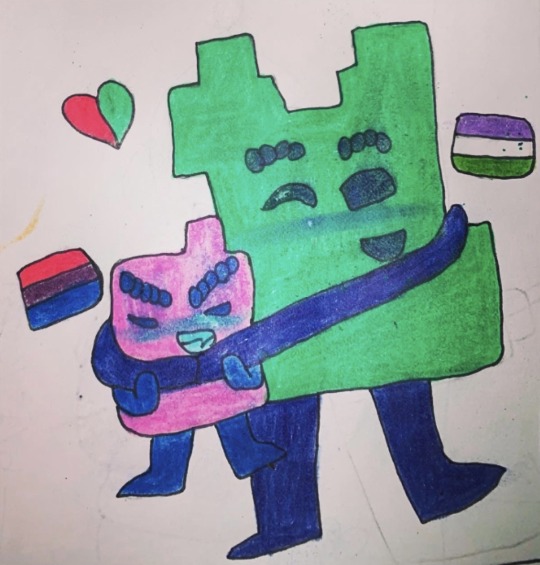


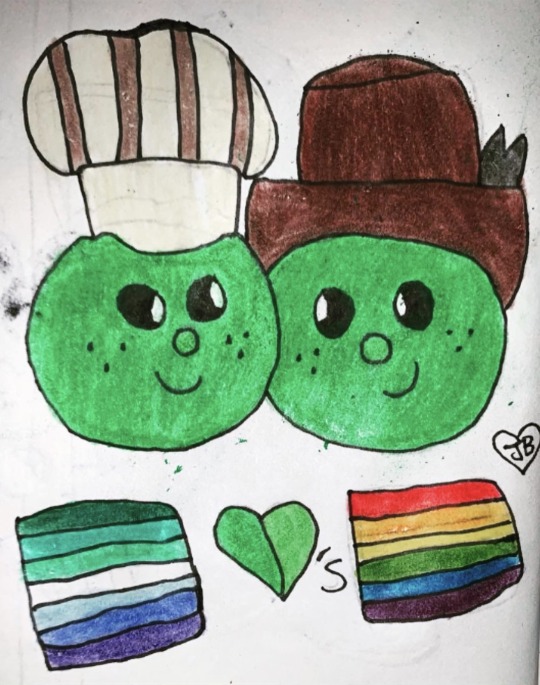

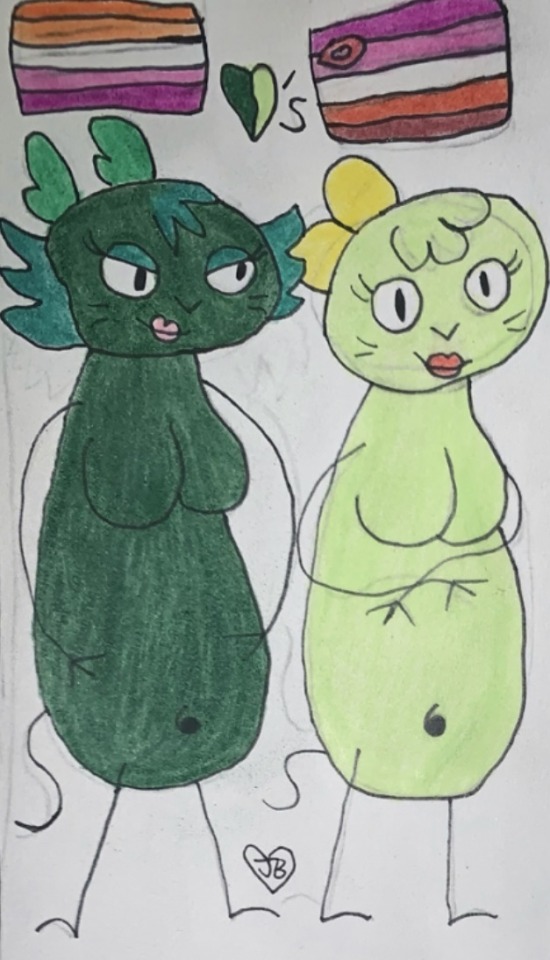




#adult swim#fanart#12ozmouse#shipping#aqua teen hunger force#my oc art#joecop#redraw#willie nelson#christy noogette#demisexual#pansexual#pride month#bisexual#transgender#genderqueer#my persona#my bestie#jessica moore#nonbinary#genderfluid#hearts#lesbian#lipstick lesbian#Fitz’s moms#fitzoda#veggietales#the french peas#jean claude#phillip pea
5 notes
·
View notes